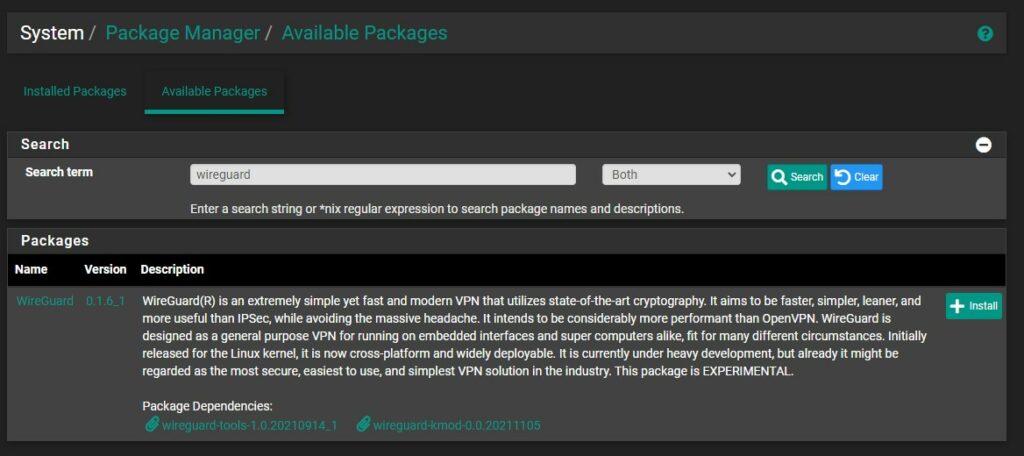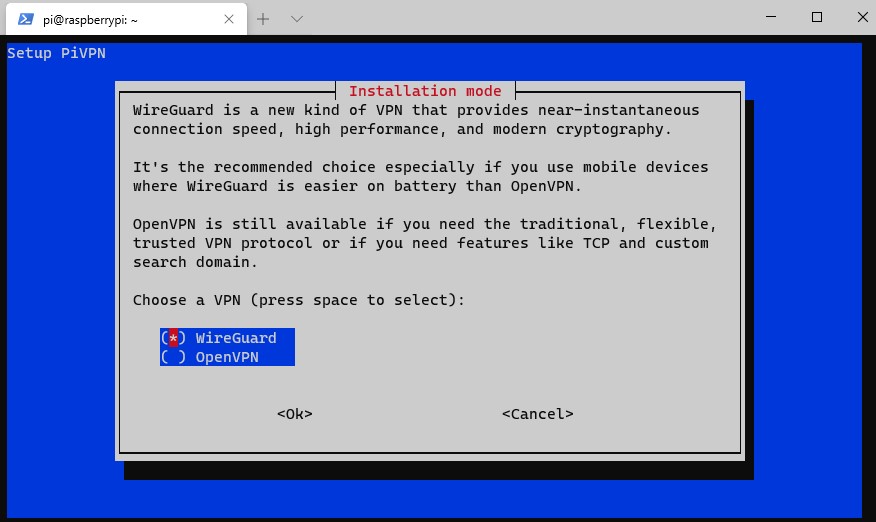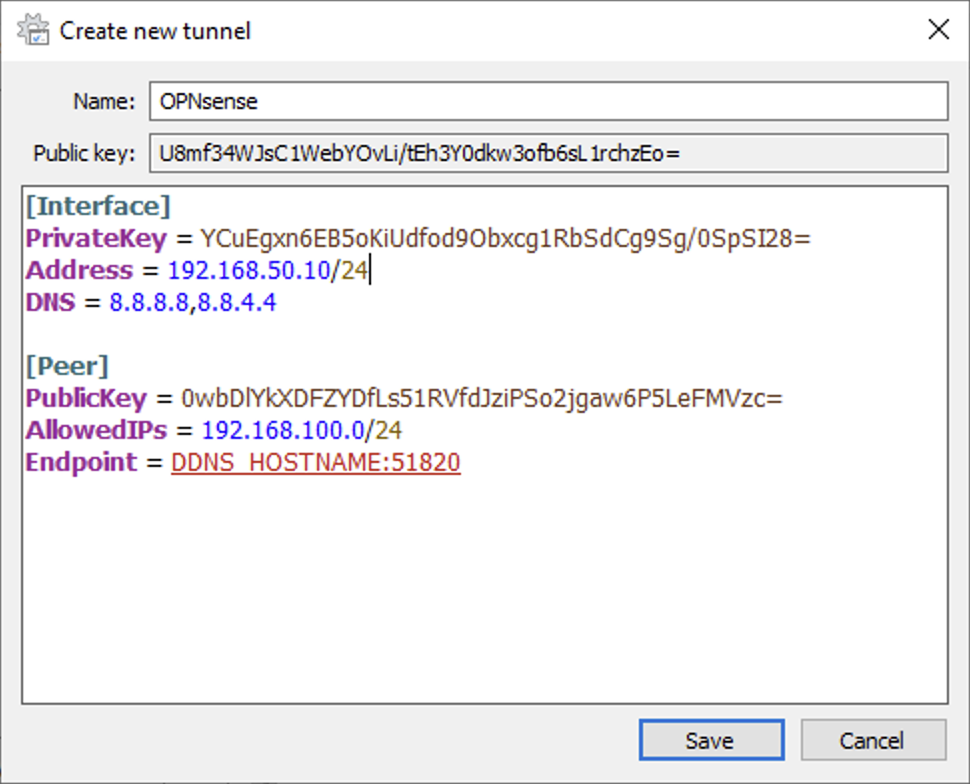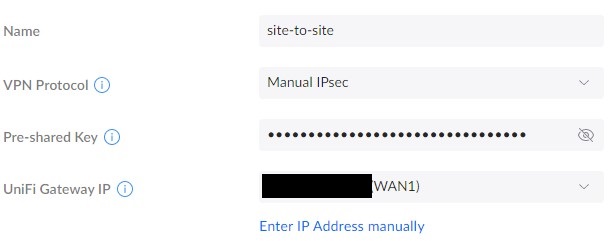In this article, we’re going to look at WireGuard vs. IPsec to determine which VPN protocol is best. WireGuard and IPsec are two of the most popular choices for personal and enterprise VPN usage. They’re also extremely common in situations where site-to-site VPNs are required, as they are arguably the best options in that space.
What are WireGuard and IPsec VPN protocols?
Introduction to WireGuard
WireGuard is a modern, open-source VPN (Virtual Private Network) protocol that is designed to be simple, fast, and secure. It uses state-of-the-art cryptography to provide private network connectivity over public networks like the Internet.
WireGuard’s simplicity comes from its streamlined design and small codebase, which makes it easier to audit and maintain for security vulnerabilities when compared to other VPN protocols. It also uses a single cryptographic suite based on cutting-edge cryptographic principles, eliminating the chance of misconfigurations that could potentially create vulnerabilities.
Introduction to IPsec
IPsec, an acronym for Internet Protocol Security, is a suite of protocols for securing Internet Protocol (IP) communications by authenticating and encrypting each IP packet in a data stream.
In the comparison of WireGuard vs. IPsec, it’s important to note that IPsec can be paired with the Internet Key Exchange version 2 (IKEv2) protocol to enhance IPsec’s configuration and reconnection features, making it more versatile and reliable. This is important to note because there are other (potentially insecure) protocols you can use with IPsec.
The Role of L2TP in VPN Protocols
Layer 2 Tunnel Protocol (L2TP) is often used with IPsec to provide encryption, as L2TP itself does not encrypt data. For this reason, L2TP/IPsec is a common VPN protocol, offering strong encryption and authentication.
However, compared to newer protocols like WireGuard, L2TP/IPsec might not provide the same level of speed and performance.
If you’re interested in seeing an L2TP/IPsec VPN configured, here is a tutorial on how to configure L2TP/IPsec on a UniFi device.

1. What is WireGuard and how does it compare with IPSec?
WireGuard is a relatively new VPN protocol that offers a minimalistic approach to VPN design. It has a smaller code base compared to older protocols like IPSec and IKEv2, promising simpler configuration, better performance, and enhanced security. On the other hand, IPSec is an established VPN protocol used widely in commercial and corporate settings.
2. How Does the Performance of WireGuard and IPSec compare?
Performance-wise, WireGuard typically runs faster compared to IPSec and even faster than other VPN protocols like OpenVPN. This performance increase is due to its streamlined code base and modern encryption methods which result in less total CPU usage. This provides higher throughput and lower latency which provides faster overall performance.
3. Which has Better Security, WireGuard or IPSec?
IPSec and WireGuard both provide strong encryption. However, WireGuard uses modern and secure cryptography, with no known vulnerabilities at its core. IPSec is also considered secure but it could be vulnerable due to the complexity of its IPSec protocol.
Overall, a key takeaway here is that WireGuard limits the encryption options and forces you to use one, where IPsec can technically be configured with different encryption options. These additional encryption options for IPsec can provide worse security if they’re configured improperly.
4. Are there any use cases where one protocol would be preferable over the other?
Yes, there are different use cases where you might prefer one protocol over the other. WireGuard is a great choice if you’re prioritizing speed, efficiency, and ease of use, particularly for personal use of VPN. On the other hand, IPSec paired with IKEv2 (and configured properly) might be preferable for businesses due to its comprehensive feature set and wide support among enterprise-grade devices.
5. How well is WireGuard supported compared to IPSec?
In terms of support, IPSec has been around for a longer period of time and is therefore supported on just about every platform, including iOS, Android, Linux, and various routers.
WireGuard, though relatively new, has quickly gained support and is included in the Linux kernel, and supported by many commercial VPN services and platforms. Two of my favorite platforms to run WireGuard on are pfSense and OPNsense.

Unlike most VPNs like IPsec, using the WireGuard protocol guarantees a blend of speed and security, without compromising either.
Technical Differences: WireGuard vs. IPsec
WireGuard and IPsec: TCP/UDP Comparison
WireGuard only uses UDP for tunneling IP packets, which makes networking traffic faster, while IPsec supports both TCP and UDP packets. This addition of TCP packets can bring more stability, especially in router and firewall scenarios where TCP is more often prioritized.
The Role of Linux in WireGuard and IPsec Protocols
WireGuard is now part of the Linux kernel, ensuring its wide-scale applicability and high performance. This also allows low-powered devices like a Raspberry Pi to function as low-powered WireGuard VPN servers.

On the other hand, IPsec was also designed with Linux in mind, but it does not have the same direct kernel integration that WireGuard has, making WireGuard slightly more advantageous on Linux servers.
New VPN Features: What WireGuard Offers versus IPsec
WireGuard offers a slimmed-down code base, making it easier to audit and manage. It also offers roaming IPs, which ensure continuous connection even when the client changes its IP address. This means that you can seamlessly connect and disconnect from networks without losing your VPN connection.
In contrast, IPsec is robust and proven but lacks some of the innovative features that WireGuard brings to the table.
Use Case Scenarios for WireGuard and IPsec
Choosing the Right VPN Protocol: WireGuard or IPsec?
The choice between WireGuard and IPsec significantly depends on the specific use case. While WireGuard provides quicker connections and easier configurations, IPsec offers a more established, wildly-adopted protocol, especially for larger commercial VPN networks.
Commercial VPN Use Cases: WireGuard vs. IPsec
Most commercial VPN providers offer both WireGuard and IPsec protocols. WireGuard is favored for its speed, ease of use, and innovative features, while IPsec is chosen for its compatibility and wide adoption, especially within corporate VPNs.
It’s also important to note that since WireGuard is the newer VPN, IPsec is a trusted protocol in the enterprise space (as always, when configured properly).
How WireGuard and IPsec Fit into Different Encryption Needs
Both WireGuard and IPsec offer robust encryption standards, but WireGuard uses modern cryptographic primitives while IPsec relies on more traditional methods. They both fit well for different encryption needs depending on the security level required.
Analyzing Performance, Security, and Ease of Use
Performance Analysis: The Impact of Encryption and CPU Load
Both WireGuard and IPsec impose some CPU load due to the process of encryption and decryption, but WireGuard handles the load more efficiently.
Additionally, WireGuard’s performance is generally better due to its innovative encryption algorithms and streamlined design. From a performance perspective, WireGuard is simply faster than IPsec.
Security Features: WireGuard vs IPsec
WireGuard applies state-of-the-art encryption algorithms that make it as secure, if not more, than IPsec VPNs. However, since IPsec is a more mature protocol, it has been rigorously tested, which gives it credibility in terms of security.
As mentioned above, there are insecure ways to configure IPsec-based VPNs, which isn’t a concern with WireGuard.
User-Friendly VPNs: A Look at WireGuard and IPsec
WireGuard is considered more user-friendly due to its simplicity. One of the downsides of WireGuard is that new users may be confused by its usage of keys. While most tutorials explain how to use them, it’s important to understand how keys are configured and their importance in WireGuard.

Alternatively, IPsec can be a bit complex to configure but offers more customization. Most VPN services have apps that simplify the configuration process, so this might not be much of an issue for regular VPN users.
Site-to-Site VPNs for WireGuard and IPsec
Both WireGuard and IPsec protocols offer viable options for establishing site-to-site VPNs, albeit with distinct strengths. WireGuard, being a modern, lightweight protocol, provides fast, secure connections with easy setup and maintenance due to its minimalistic design.
IPsec stands out with its comprehensive security features. It offers a variety of encryption algorithms and authentication methods, making it particularly suitable for large-scale deployments capable of managing high traffic volumes effectively.

The choice between WireGuard and IPsec for site-to-site VPNs is largely based on your specific network requirements and the complexity level you’re willing to handle. Regardless of your choice, both protocols offer secure and uninterrupted communication between different locations.
Main Differences Between WireGuard and IPSec
The main difference between WireGuard and IPSec is that WireGuard is simpler and more modern compared to IPSec. WireGuard has a smaller codebase which is believed to offer better speed and security compared to IPSec. However, IPSec is a mature protocol, with plenty of feature features and compatibility.
Conclusion: Which Should You Choose? WireGuard or IPsec?
In conclusion, WireGuard is a promising VPN protocol offering speedy performance, efficient security features, and user-friendly interfaces. It also has a lean code base that is easy to audit, making it a significant competitor in the VPN arena.
Meanwhile, IPsec remains a reliable and proven choice, providing robust security and extensive compatibility. Serving as an established VPN protocol, IPsec continues to hold its ground amid emerging protocols.
The decision between WireGuard and IPsec should ideally be based on individual preferences, needs, and technical know-how. One should consider their unique use case, the required security level, the type of network, and the VPN services available to them for the best results.
Both WireGuard and IPsec mark their importance in the VPN landscape. WireGuard vs. IPsec is not about which is superior, but which is the most suitable choice for a particular scenario.




